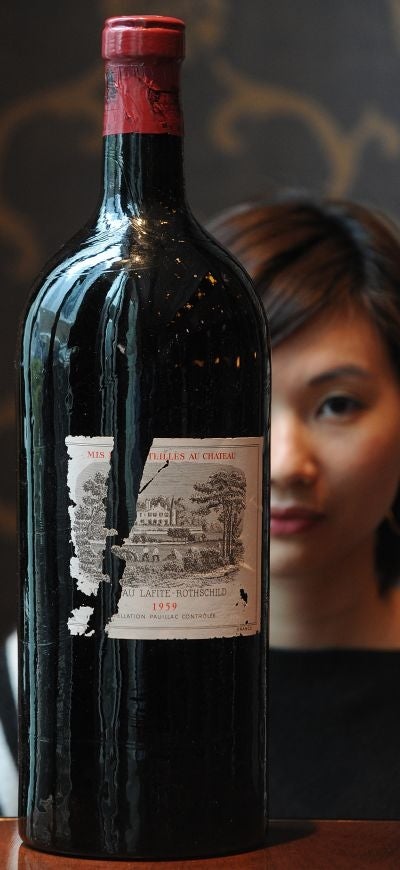Watch for the rise of fake wine, Asia's top expert warns

The international wine industry like everyone else is watching the rapidly growing Chinese market intently - and that's the very best way to watch it, according to Asia's leading wine expert.
Simon Tam - a noted wine connoisseur and the founder of Hong Kong's Independent Wine Centre ( http://www.iwinecentre.com/) - has gone public this week with his concerns about the growing threat fake wine has on the Chinese market, which is among the fastest growing in the world.
Tam has been quoted in the local press as saying friends of his had been offered as much as HK$10,000 (936 euros) for an empty bottle of Chateau Lafite 1982.
Apparently the bottles are then filled with ordinary wine and offered on the market for a knockdown HK$40,000 (3,700 euros) - down from the average price of HK$100,000 (9,400 euros) going for that vintage.
"We have to act fast," Tam told the South China Morning Post, before warning the region's new wine lovers to examine their purchases carefully.
A wine dealer contacted by Relaxnews confirmed the rumors. "What you get with fine wine tastings on the mainland - and we are talking about tastings of some of the world's truly great vintages - is the strange experience of seeing the waiters afterwards smashing all the bottles," said the dealer, who wished to remain anonymous. "They either smash the bottle so people can't use them again - or get the person representing the vineyard to sign the label as a souvenir."
The impact this fake wine threat has on Hong Kong comes from the fact that the city is mainland China's main avenue of supply for the high-end vintage wines which are sold here primarily at auction.
Since all wine duties were abolished in Hong Kong in 2008, the city has become the world's largest market for the auction of fine wines - overtaking New York and London. Leading auction house Sotheby's reported that last year it alone moved more than HK$400 million (37 million euros) in wine through Hong Kong - which accounted for more than 60 percent of all the wine it auctioned off globally.
Hong Kong's most famous case of wine fakery happened in 2001 when 30 bottles of 1982 Chateau Lafite Rothschild - selling for HK$5,000 (468 euros) per bottle at the time - were found to contain wine that retailed for HK$160 (15 euros) a bottle.
Tam offers wine lovers two simple rules to go by when buying vintage wine:
- Always buy from reputable cellars and auction houses.
- If someone offers you a discounted price, examine the wine very carefully.
MS
Join our commenting forum
Join thought-provoking conversations, follow other Independent readers and see their replies
Comments
Bookmark popover
Removed from bookmarks